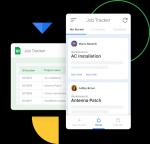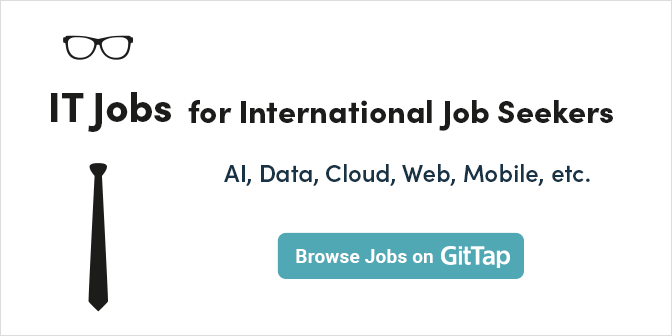This year, Google acquired Appsheet, a platform for no-code development, and also Amazon released Amazon Honeycode, a no-code tool, and no-code development has become a hot topic worldwide.
In this article, we would like to explain NoCode development and its popular tools, which have been getting a lot of attention in Japan recently, for foreigners and IT engineers who are interested in Japanese web and smartphone app development trends.
Contents
What is NoCode?
NoCode tools are software development platforms that allow non-technical people to build their own applications without having to write codes or even a programming language. These tools often feature a simple user interface with drag-and-drop functionality, allowing you to easily visualize the development process and define the underlying business logic.
The terms NoCode and LowCode themselves are often thought of as being similar, but as the names suggest, there is a big difference.
-
- NoCode
The NoCode platform allows users to build software with essentially no programming language.
-
- LowCode
LowCode platforms may require an amount of coding and require users with no programming knowledge to work with the developers (knowledgeable ones) during some or all of the development process.
※To learn more about LowCode, please take a look at this link. (What is LowCode)
Benefits of using NoCode
No programming knowledge required
If you are building an application with NoCode, you don’t need to have any programming knowledge to code from scratch. This is different from app development in the past and makes it possible for people with no knowledge of programming languages to develop apps.
For example, people working in various business units who are not part of the IT department will be able to develop systems that can solve everyday business problems on their own, or people who have great ideas for new systems and services, but without any programming experience.
Shorter development time
NoCode development eliminates the time it takes to code by hand, so the time from app or service conception to development and release can be significantly reduced.
Faster development is required to meet diversified needs and to survive in the midst of numerous innovative companies and businesses. With the speed of new business ideas, the no-code approach to development will take on greater significance in the future.
Featured NoCode Services
We would like to introduce you to the NoCode service that is getting a lot of attention and its features.
Bubble
- Flexible development from the front end to the back end of a web application is possible.
- Uses an intuitive interface with a drag-and-drop editor.
- There are plenty of free and paid templates created by Bubble’s own designers.
- It has about 1,000 different plug-ins for connecting with external services.
Bubble is the most popular development tool in NoCode tools and is used by many users in Japan as well as abroad for its rich customizability and easy-to-understand development procedures.
Adalo
- It is possible to develop both web and smartphone apps on a single tool.
- Since it is linked with “Zapier”, it made easily linked with external services such as “Gmail” and “Google Spreadsheet”, it is a tool that can be used as a tool for business automation.
- UI parts for screen building are available, so users can build a system by simply dragging and dropping the parts that match the system they want to build.
Appsheet
- It has been in the spotlight in Japan since it was acquired by Google in January 2020
- You can create a number of apps for your internal operations, such as budget apps, webinar apps, quote and proposal apps, and more
- Reusable code blocks for manipulating data and the ability to manually customize the code to make it unique to your content
Retool
- Works with useful drag and drop editor.
- A feature-rich component library (tables, text entry, etc.) allows you to build internal tools faster.
- Reusable code blocks for manipulating data and the ability to manually customize the code to make it unique to your content.
Conclusion
The no-code platform has revolutionized the business of IT, making it easier than ever to get up and start using feature-rich enterprise software. While there will always be a need for human-driven software development, the no-code platform fills an important space for businesses and industries of all sizes.
If you are a foreign IT engineer interested in working for a Japanese company and would like to work for a Japanese company, register with G Talent, a recruitment agency for foreign IT engineers. Our professional consultants will help you find a job at a Japanese technology company for free.














